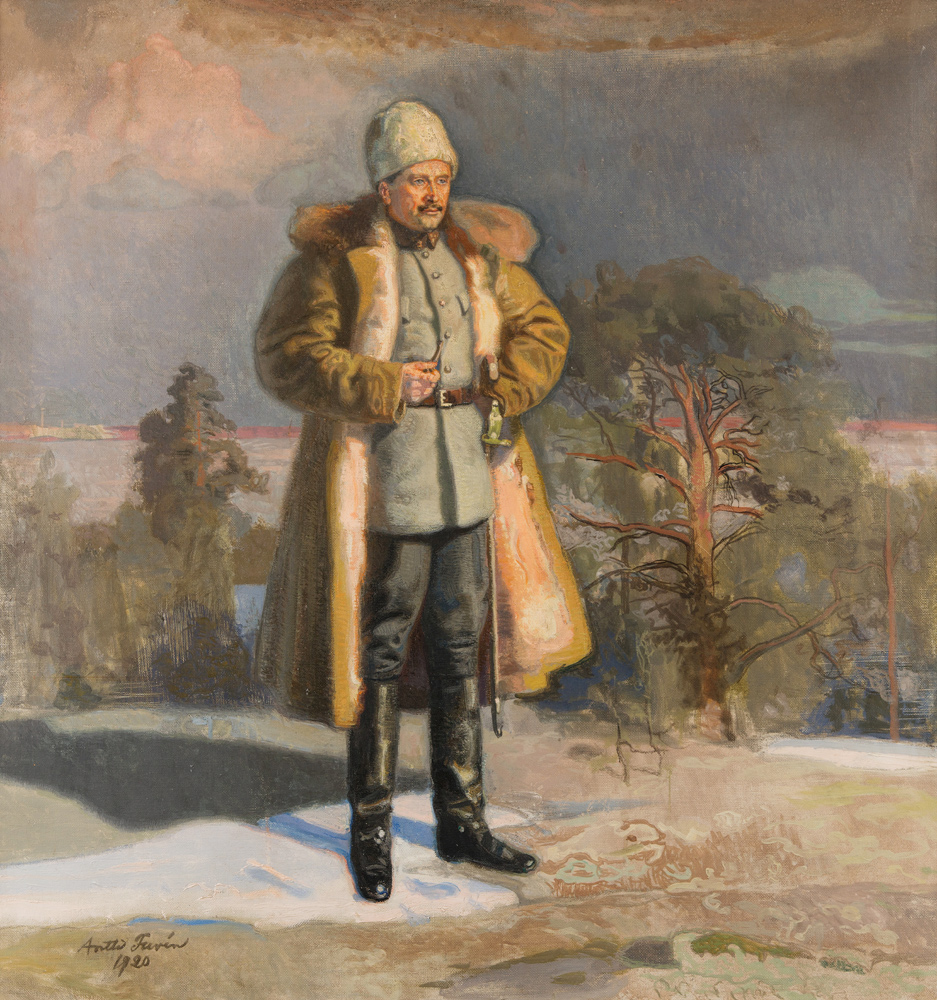Enter the Dragon
A Finnish national hero on a spy mission across China.
by Trevor Corson
Originally published in the Boston Globe on April 24, 2011.
It’s always curious when a person of privilege spurns his piece of earthly paradise and tramps into impoverished wastelands to suffer of his own volition. It’s even more curious when that person returns from exile to become a legend, accomplishing what not even the world’s greatest armies could. He halts the global advance of communism—almost single-handedly, it seems—and in the process transforms his impoverished land into the most privileged place on earth.
This most privileged place—today "the best country in the world" in which to be born, according to Newsweek—is a small outpost that for nearly a century held the line between the capitalist West and the communist East. It's Finland, and the man who returned from exile to safeguard freedom, democracy, and wealth from the red demons next door was Carl Gustav Mannerheim, a sort of Finnish George Washington and Ronald Reagan rolled into one. Mannerheim’s little-known midlife adventures have inspired Eric Enno Tamm's new travelogue, The Horse That Leaps Through Clouds: A Tale of Espionage, the Silk Road and the Rise of Modern China.
I once spent a few hours sitting by the sea a short drive from where Mannerheim grew up on Finland’s west coast. It was idyllic, and I wondered why anyone would want to leave, even lacking the luxuries Mannerheim possessed, including his family’s palatial manor house, landscaped English gardens, and private beach, not to mention his title of baron.
But on the cusp of turning 40—depressed, headed toward divorce, and still decades away from his future fame—Mannerheim sought diversion, and found it in a job offer from the Russia Empire in 1906. The mission was to fake his way into the Chinese Empire, in the guise of an anthropologist, to collect military intelligence for a possible invasion.
So began a peculiar interlude in Mannerheim’s career, a solitary trek from Central Asia into the Qing Dynasty’s back door, across the bleak deserts and brutal mountain ranges of western China, through Muslim, Tibetan, Mongolian, and Chinese territories encrusted with hardship and poverty. Mannerheim covered some 2,000 miles, mostly on horseback, and wrote down everything he saw or heard, enduring large doses of exhaustion, illness, hostility, and frustration along the way. He was gone for two years.
In the summer of 2006, precisely a century to the day from Mannerheim’s departure, Tamm set out to retrace Mannerheim’s route, and this second journey forms the backbone of the Canadian journalist’s account. The Horse That Leaps Through Clouds weaves details of Mannerheim’s reports from Imperial China with Tamm’s take on the same places today. The title derives from a fanciful translation of Mannerheim’s name in Chinese.
Why Tamm pursues this quest has partly to do with his father, a refugee from Estonia—a cultural cousin to Finland that, less fortunately, succumbed to the communist onslaught—who lionized Mannerheim. Tamm also appears to share Mannerheim’s restive nature, choosing to forsake idyllic Vancouver for the privations of the journey, which turn out to be substantial. Tamm seeks to know not just the path, but also the man.
If all this is starting to sound a bit too scattered to fit between the covers of one book, you might be on to something. For a project billed as "a cautionary tale about the breathtaking rise of China," Tamm’s approach frustrated me from the get-go, as we slogged through Russia and the Central Asian republics for the first hundred pages before even glimpsing the Chinese border, with only the faintest of thematic signposts to guide the way.
Once inside China, though, Tamm finds more focus, and the book’s quirky premise delivers an unorthodox view of the country as a diverse and troubled constellation of distressed ethnicities, an untamed body politic more often than not still struggling today as a communist dictatorship with the same contradictions and conflicting agendas that Mannerheim noted under the Qing emperors. Tamm’s account of a surreal mountaintop meeting between Mannerheim and the Dalai Lama—a previous incarnation of him, but with pretty much the same problems—is riveting.
Less riveting, for me at least, was Tamm’s cataloguing of the daily details of what he sees and eats, which pile up like the relics that Tamm chides turn-of-the-19th-century ethnographers for pillaging, with the effect of flattening the narrative. But Tamm also demonstrates a dogged talent for encountering illustrative characters, and his digressions into helpful history and irreverent commentary feel thoughtfully researched and fresh.
In the end, Mannerheim the man remains elusive, and China’s trajectory clouded. Mannerheim moved on to a new mission—fighting communism—that leveraged his aristocratic origins into fame. While he succeeded in saving Finland, Mannerheim lived just long enough to witness China’s fall to communism. What he didn’t live to witness would have struck him as ironic. Tamm’s trip reveals that the communist East today is more wildly capitalist than the West. Whether that can result in China ever becoming "the best country in the world" remains to be seen.
